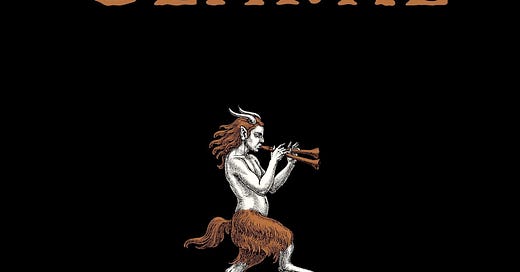Finally getting around to this one. Today I'm sharing my thoughts on Susanna Clarke's follow-up to Jonathan Strange & Mr Norrell—the enigmatic and beautiful Piranesi. After a sixteen-year gap, Clarke returns with something completely different: a slim, mysterious novel that feels like a fever dream crossed with a philosophical treatise. If you're looking for epic fantasy, look elsewhere. If you want something that will linger in your mind for weeks, keep reading.
A World of Infinite Halls
Piranesi introduces us to its titular narrator, a man who lives alone in a vast House of infinite halls, filled with classical statues and tidal waters. He believes only two living people exist: himself and "the Other," who visits occasionally to conduct mysterious research. Piranesi spends his days cataloging the House's wonders, caring for its bird inhabitants, and maintaining detailed journals that serve as our window into this strange world.
Clarke's greatest achievement here is the voice of Piranesi himself—innocent, methodical, and suffused with genuine wonder at his surroundings. Sidenote: the audiobook is fantastic! Through his meticulous observations and naive perspective, we experience the House as both magical and ominous. Clarke draws clear inspiration from Giovanni Battista Piranesi's 18th-century architectural etchings, particularly his "Imaginary Prisons," creating a setting that feels both classical and otherworldly.
The novel's structure mirrors its mystery perfectly. Clarke parcels out information with surgical precision, allowing readers to piece together the truth alongside—and sometimes ahead of—our unreliable narrator. This creates a reading experience that's part puzzle, part meditation on memory and identity. The House itself becomes a character, its endless halls serving as both prison and sanctuary.
What struck me most profoundly was Clarke's exploration of how we construct meaning from our surroundings. Piranesi finds joy and purpose in his seemingly isolated existence, suggesting something beautiful about human resilience and our capacity to create wonder even in constrained circumstances. The novel asks whether ignorance can be a form of bliss, and whether some truths are worth the pain of knowing.
Clarke's prose is precise, each sentence carrying weight without unnecessary ornamentation. The book's brevity works in its favor—at just over 240 pages, it maintains its dreamlike quality without overstaying its welcome. However, some readers might find the deliberate pacing and mysterious atmosphere frustrating, especially those expecting the rich historical detail of Clarke's debut.
My only minor criticism is that certain revelations feel somewhat predictable once the mystery's framework becomes clear. Additionally, the ending, while emotionally satisfying, resolves perhaps too neatly for such an otherworldly tale.
Piranesi succeeds as both a standalone fantasy and a meditation on memory, wonder, and what makes us human. It's a book that rewards careful reading and benefits from discussion with other readers. For its unique voice, haunting atmosphere, and philosophical depth, I give it 4/5 stars.





